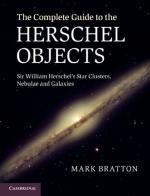|
This section contains 240 words (approx. 1 page at 300 words per page) |
William Herschel, his sister Caroline, and his son John constitute one of the most famous families in astronomy.
William Herschel (1738-1822) was born in Hanover, Germany, and moved to England in 1757 to pursue a career as a musician. However, his interests shifted and William began studying astronomy in 1766. He cataloged celestial objects in an attempt to determine the three-dimensional structure of the galaxy. William discovered over 800 double stars and showed that many of them revolve around each other. On March 13, 1781, William became the first person to discover a new planet: Uranus. He also discovered four moons: Titania and Oberon at Uranus, and Enceladus and Mimas at Saturn.
Caroline Herschel (1750-1848) joined William in England in 1772 to pursue a career as a singer. She began assisting William full-time with his astronomical observations in 1782 and also started observing on her own that year. She discovered eight comets, a record by a female astronomer until 1987. Caroline also compiled catalogs of star clusters and nebulae.
John (1792-1871) used the Sun's spectrum to determine its chemical composition and made long-term observations of solar phenomena. In the 1830s, he traveled to South Africa to observe southern hemisphere star clusters and nebulas and revised the nomenclature of southern stars.
See Also
Astronomy, History of (Volume 2);; Comets (Volume 2);; Small Bodies (Volume 2);; Stars (Volume 2);; Uranus (Volume 2).
Bibliography
Lubbock, Constance A. The Herschel Chronicles: The Life-Story of William Herschel and His Sister Caroline Herschel. Cambridge, UK: University Press, 1993.
|
This section contains 240 words (approx. 1 page at 300 words per page) |


